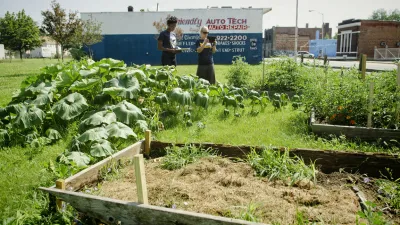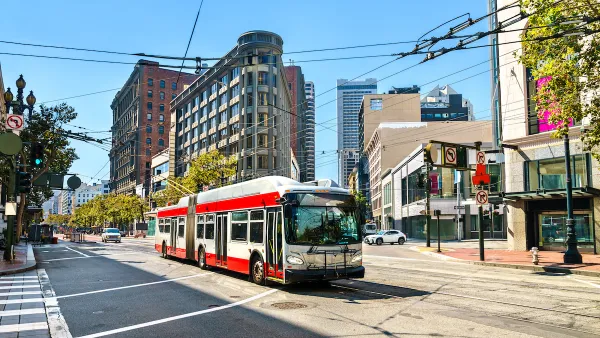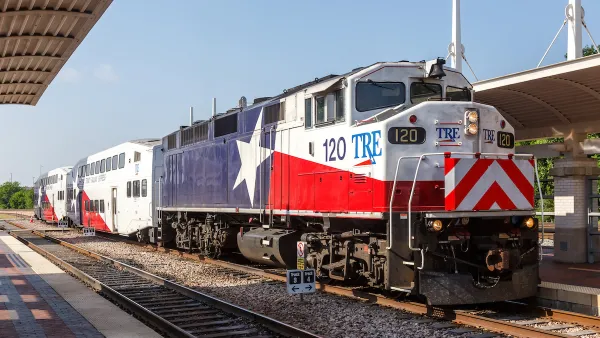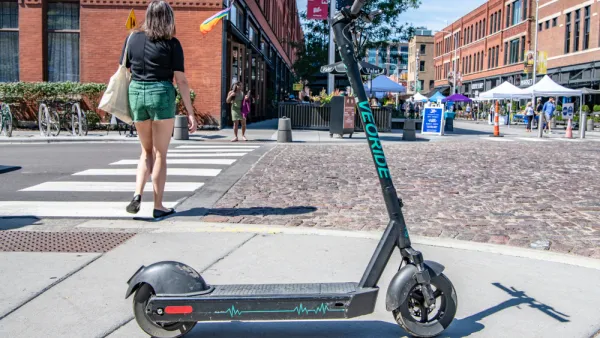Learn about nonprofits' pivotal role in urban sustainability, from policy advocacy to launching eco-initiatives that are transforming cityscapes for the better.

Urban planners have a role in creating more sustainable cities by partnering with local organizations. People may struggle to find affordable ways to start new projects and increase green space in lower-income communities. Fortunately, nonprofits have the infrastructure and resources to begin making changes. They can also partner with bigger corporations for the funding needed to add parks, community gardens and other improvements.
1. Implement green infrastructure
As the world shifts to a renewable energy model, adding green infrastructure to current methods requires funding and careful planning. Natural areas recede as urban sprawl grows. Figuring out how to coexist with nature is challenging.
Fortunately, nonprofits such as The Nature Conservancy are teaming up with big corporations to collect recommendations on the best way to implement a hybrid system. Some of the companies involved in a 2023 meeting included The Dow Chemical Co., Swiss Re, Unilever and Shell. Much of the focus is on protecting natural resources and using them in smarter ways.
2. Engage the community
Nonprofits can build awareness through training, workshops and boot camps. Urban planners can gain valuable insights from those who live and work in the community. Will a new solar farm cause a neighborhood to lose a valuable park families enjoy? The more informed people are, and the more nonprofits work alongside them, the better sustainable features are for everyone.
EchoingGreen and Barclays partnered to put on a Social Innovation Challenge & Bootcamp where the bank got exposure, the nonprofit found projects to support, and the community turned out for information and to provide input. They discussed how the pandemic revealed issues in urban development and sought solutions. Everyone benefits when people work together to create a more sustainable future.
3. Donate land
Nonprofits can also utilize city land to offer community gardens. They focus on organic fruits and vegetables and overcoming food deserts for those in poverty. Companies and individuals can team up with the neighborhood by offering the use of vacant lots or giving access to flat rooftops.
Small-business owners and nonprofits can easily start a garden without much red tape. Cass County Community Garden started when Aly Irvin offered space outside her business for community use.
Urban food deserts create several issues that community gardens can solve. People can stay in the area to get fresh produce, reducing carbon emissions. Plants add oxygen to the air and reduce carbon. Organic gardening methods reduce chemical pollutants that can leach into soil and streams.
4. Support alternative transportation
Electric vehicles (EVs) are more efficient, utilizing up to 91 percent of energy to propel forward than a combustion engine's 25% or less. It’s easy to see why EVs are a more sustainable option in urban settings.
People might be willing to drive EVs, but if available charging stations are scarce, it could be next to impossible for most people. Nonprofit organizations can encourage city planners to support alternative transportation such as buses, riding bikes or carpooling.
Companies can also support more charging stations to encourage EVs for citizens and public transportation. Electrify America and IKEA committed to adding charging stations to 25 of the brand's retail locations.
5. Build around transportation centers
Access to public transportation makes cities more sustainable, reduces carbon emissions and helps underprivileged communities expand opportunities. HUD, DOT and the EPA have a sustainable communities program that works to award funding for development utilizing grants. Preparing for possible climate change is part of the equation.
One example of a nonprofit working alongside government organizations to improve conditions is Kansas City's Mid-America Regional Council. It’s working on a blueprint for the public transportation system through 2050. Council members worked with city leaders to prioritize 425 projects submitted by 39 local government agencies.
Working alongside nonprofits for maximum impact
Cities have a certain personality and beat. Urban planners must work alongside organizations that have a close connection with citizens to incorporate sustainability measures without changing the fabric of city living. Adding amenities and public services makes living in town more attractive. Focusing on what to change and how it benefits people and the environment ensures a greener future for urban areas.

National Parks Layoffs Will Cause Communities to Lose Billions
Thousands of essential park workers were laid off this week, just before the busy spring break season.

Retro-silient?: America’s First “Eco-burb,” The Woodlands Turns 50
A master-planned community north of Houston offers lessons on green infrastructure and resilient design, but falls short of its founder’s lofty affordability and walkability goals.

Delivering for America Plan Will Downgrade Mail Service in at Least 49.5 Percent of Zip Codes
Republican and Democrat lawmakers criticize the plan for its disproportionate negative impact on rural communities.

Test News Post 1
This is a summary

Test News Headline 46
Test for the image on the front page.

Balancing Bombs and Butterflies: How the National Guard Protects a Rare Species
The National Guard at Fort Indiantown Gap uses GIS technology and land management strategies to balance military training with conservation efforts, ensuring the survival of the rare eastern regal fritillary butterfly.
Urban Design for Planners 1: Software Tools
This six-course series explores essential urban design concepts using open source software and equips planners with the tools they need to participate fully in the urban design process.
Planning for Universal Design
Learn the tools for implementing Universal Design in planning regulations.
EMC Planning Group, Inc.
Planetizen
Planetizen
Mpact (formerly Rail~Volution)
Great Falls Development Authority, Inc.
HUDs Office of Policy Development and Research
NYU Wagner Graduate School of Public Service






























